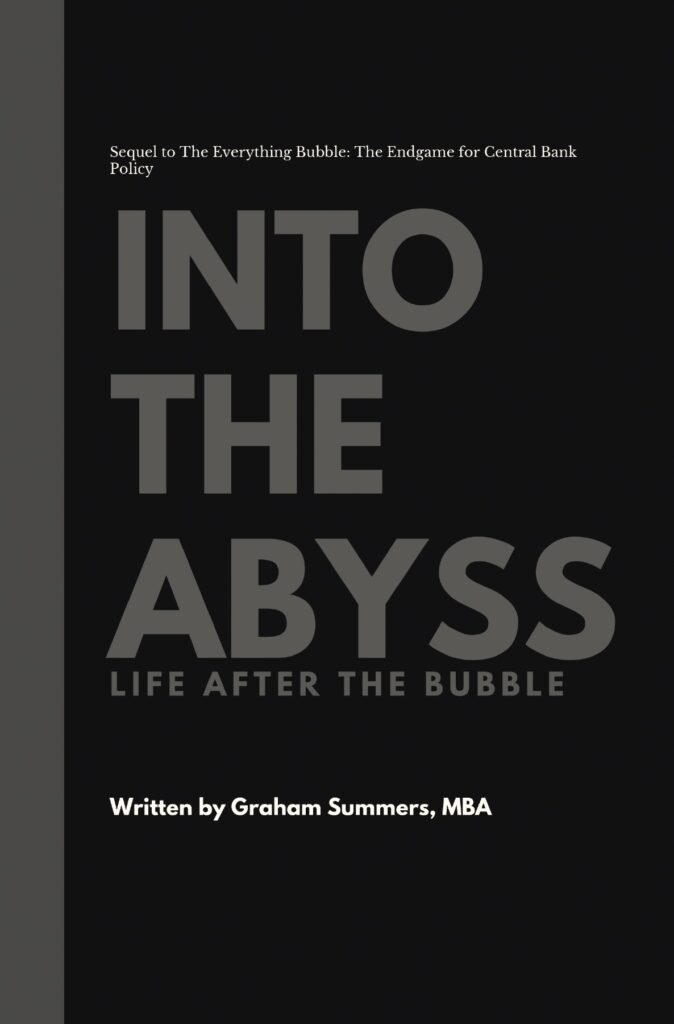If you’re looking for insights into what Central Banks have planned when The Everything Bubble bursts, yesterday one of the European Central Bank’s (ECB) top bankers provided a blueprint.
Benoît Cœuré, has been a member of the Executive Board of the ECB since 2011. As such is one of SIX individuals who have dictated ECB policy during that time.
This means he’s been involved in:
- The second and third Greek bailouts.
- The Spain bailout.
- The Portugal bailout.
- The second and third Romania bailouts.
- The Cyprus bail-ins.
Cœuré has operated at the highest level of monetary/ financial policy during a period in which numerous financial/banking systems were experiencing systemic risk.
Put simply, there are less than 100 people on the planet who are as familiar with how Central Banks perceive the risks in today’s financial system as well as the policies said Central Banks will unleash when the next crisis hits.
With that in mind, let’s take a look at what he had to say regarding both in the speech he gave titled The Future of Central Bank Money at the International Center for Monetary and Banking Studies in Geneva yesterday.
In my remarks this evening I would like to share some more general thoughts on the role of the central bank’s balance sheet in the economy. My focus will be on central bank liabilities – that is, money created by central banks to be used as a means of payment and store of value…
What distinguishes the discussion today from previous discussions, however, are three new facts:
The first is that we are seeing a dramatic decline in the demand for cash in some countries, in particular Sweden and Norway.
The second is that central banks today could make use of new technologies that would enable the introduction of what is widely referred to as a “token-based” currency – one based on a distributed ledger technology (DLT) or comparable cryptographic technology.
And the third “new” fact, at least from a long-term perspective, relates to the role of central banks in setting monetary policy, and more recently to the emergence of negative rates as a policy instrument and the consequences for the transmission of monetary policy.
Source: ECB
Reading between the lines, Cœuré is talking about:
- Potential cash bans in tandem with negative interest rates (the problem with physical cash is it allows you to avoid paying interest via NIRP because you can simply store it yourself instead of keeping it in a bank).
- Shifting over to a completely digital currency controlled by a Central Bank.
Cœuré finishes by stating that the near-term benefit of this is minimal, but that in the medium term…
…a more incremental reform could consist of giving a broader range of financial market participants access to the liability side of the central bank’s balance sheet, provided that this can help strengthen the transmission of monetary policy in an environment of excess liquidity.
Source: ECB
Put simply… discussions of ending physical cash and introducing strictly digital money are taking place within the highest circles of Central Bankers.
If you think this isn’t coming to the US, you’re mistaken.
Indeed, we’ve uncovered a secret document outlining how the Feds plan to take hold of savings during the next round of the crisis to stop individuals from getting their money out.
We detail this paper and outline three investment strategies you can implement right now to protect your capital from this sinister plan in our Special Report
Survive the Fed’s War on Cash.
We are making 100 copies available for FREE the general public.
To pick up yours, swing by….
http://www.phoenixcapitalmarketing.com/cash.html
Best Regards
Graham Summers
Chief Market Strategist
Phoenix Capital Research





